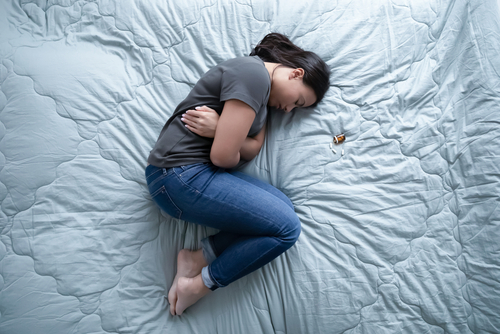 Is your teen displaying self-harming behaviors? If you have a teen cutting, you likely feel a range of conflicting emotions. You may be angry, confused, frustrated, worried, and maybe even a little bit helpless. All of these feelings are normal in a completely challenging situation. It’s one thing to be aware of this teen behavior because of portrayals on television and in the movies. It’s something entirely different when you’re faced with your own teen struggling and harming himself.
Understanding a bit more about this teen behavior and the steps to follow can allow you to help your teen.
Is your teen displaying self-harming behaviors? If you have a teen cutting, you likely feel a range of conflicting emotions. You may be angry, confused, frustrated, worried, and maybe even a little bit helpless. All of these feelings are normal in a completely challenging situation. It’s one thing to be aware of this teen behavior because of portrayals on television and in the movies. It’s something entirely different when you’re faced with your own teen struggling and harming himself.
Understanding a bit more about this teen behavior and the steps to follow can allow you to help your teen.
What Leads a Teen to Self-Harm?
Even if you have personal experience with self-harming behaviors, you may find yourself what might be behind your teen taking these actions. It’s important to note that while a teen cutting does not always point to suicidal ideation, it is still a serious cry for help that shouldn’t be ignored. Kids and teens who self-harm may face increased risks for developing thoughts of suicide. Self-harm, also referred to as self-mutilation or self-injury, is what happens when someone deliberately hurts himself or herself without the intent to commit suicide. This behavior can begin in childhood or adolescence and may follow into adulthood without treatment. There is often not one single cause of self-harm. What is typically seen in young people who cut or harm themselves in other ways is that they are feeling overwhelming levels of emotional and mental pain. For some, teen depression may be a factor. Teens could also feel worthless and lonely, and for a child or teen self-esteem may also be an issue. They may also feel overwhelmed by their responsibilities at school or at home. Or they may also feel they need to be punished for something they think they’ve done wrong. It could be that your teen is being bullied and doesn’t know how to get help. Self-harm is, quite often, a way for children, teens, and even adults to try and get a form of control back when they feel like the other parts of their lives are unmanageable and not within their control.Signs of Cutting Some May Be Subtle
The most frequently seen signs of cutting will likely be seeing fresh cuts or scars on your teen. They may be seen on the hands, wrists, arms, thighs, or stomach. Some of the cuts may just break the skin, while others may need medical attention and stitches. Some of the more subtle signs of cutting could include the following.- Depression, with an overwhelming sense of hopelessness, sleep changes, and behavioral changes
- Wearing long sleeves or long pants even in the hottest parts of the summer
- Avoiding swimming or going outside
- Wearing more jewelry on the wrists to disguise wrist cuts and scars
- Anxiety, particularly if pushed to take off a jacket or wear shorts that may expose cuts and scars
Common Myths About Self Harm
There are a few things parents should be aware of when it comes to common myths about self-harm behavior. Educating yourself is one of the best ways to ensure you’re in the best position to help your teen through this difficult stage. Here are some of the myths you may hear.- Cutting is the only type of self-harm that parents need to be aware of. Cutting is one of the most commonly seen behaviors, but there are several other ways that children and teens harm themselves on purpose. Pulling out hair, skin scratching or picking, burns, and even attempts to break bones are other types of self-injury.
- Those who self-harm are just looking for attention. There is a kernel of truth to this but it’s less about wanting attention and more about needing help without knowing the right way to ask for help.
- Self-harm behaviors are only done by girls. Boys are just as much at risk of self-harming as girls are.
- Speaking about self-harming may encourage your teen to try it. Teens who feel comfortable and have open communication may be in a better position to speak with parents about what they’re feeling.


Leave a Reply